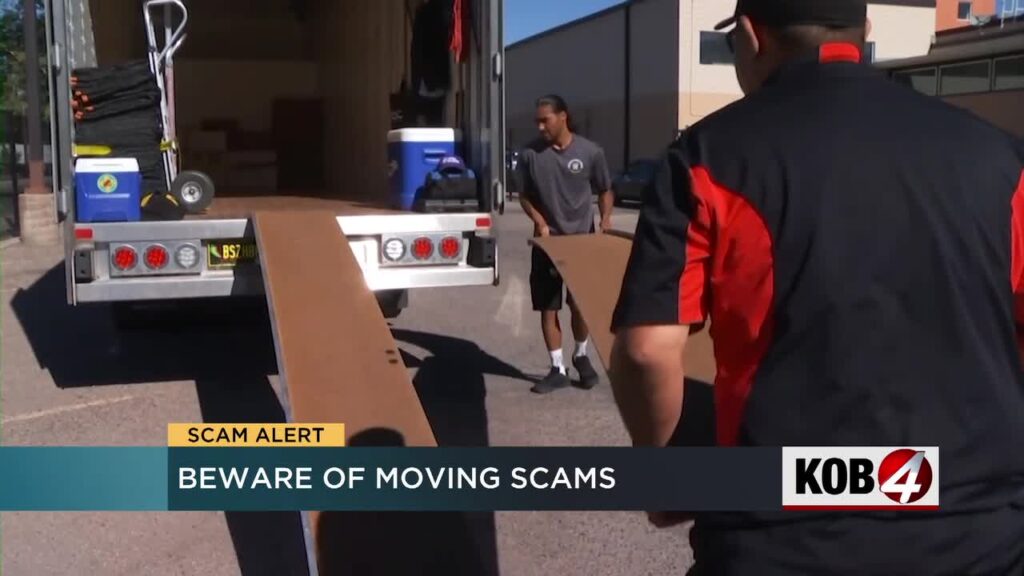
The 19 Steps Guide to avoid Real Estate Scams

Homebuyers should be alerted! Scam artists are targeting those with home buying hops, seeking to steal them out of their hard-earned money. “Real estate scams“, which involve the theft of funds or assets meant for purchasing, selling, or financing a home, are alarmingly prevalent. In 2022 alone, the FBI reported that more than 11,727 individuals were victims of real estate frauds, leading to a huge amount approximate to the $397 million in losses.
With scammers employing all kinds of deceptive tactics, it’s crucial to be aware of common “real estate scams” and learn how to protect yourself against them.
1- Wire Fraude
Many scammers target as real estate agents or wholesalers and ask you to wire funds for your down payment, closing costs, or escrow which we can call a wire fraud.
These fraudsters can be highly convincing by ways you never thought about, often replicating an agent’s contact information and having access to your personal details which you should give to a reliable person only, the home you wish to buy, and the agent you’re working with. They may also pretend to be representatives from your agent, claiming the need to change your monthly mortgage payment’s wire details.
Wire fraud is both the most common and the most dangerous real estate scam — once money has been wired to a fraudster, it is nearly impossible to recover.
How to Avoid Wire Fraud? Always call and verify the account details before wiring any money to make sure who is the one you are sending money to. Use the contact information from your original loan documents to ensure you’re sending money to the correct account. Double-check the email addresses of anyone requesting funds.
2. Fake Long-Term Rental Listings
These scams involve individuals who do not own or have the right to rent out a property, listing it with attractive photos and glowing descriptions to steal application fees and security deposits from interested renters. Scammers often claim that for an upfront payment, you can rent a fantastic place at an unusually low price. Such scams have been on the rise in recent years.
How to Avoid Fake Rental Listings If a rental listing seems too good to be true, verify the property’s address to confirm the owner or rental company. If a different name is listed as the owner, it is likely a scam. Avoid dealing with any landlord who expects you to wire money before you have seen the property in person.
3. Bait-and-Switch Home Listings
Some scammers appear as real estate agents and take the potential homebuyers with listings for cheap homes that are no longer for sale. Once you’re interested, they’ll inform you that the property has already been sold and then recommend another home, typically more expensive or in poor condition. This plays a vital role in making the sale for them with the most un-decent way but Although bait-and-switch scams violate the Federal Trade Commission Act for being unfair and deceptive, they are often difficult to prove.
How to Avoid Bait-and-Switch Home Listings Research and ask questions before working with real estate agents. Pay attention to reviews left by previous clients as it’s a sure thing that one of them will be making the statement of what happened with them .
If a listing has a suspiciously low price, don’t get in the trap compare it with prices of similar homes in the area and ask for clarification if it seems like the home is already sold. Request additional pictures of the home, tour it in person, and get the offer in writing to prove that you were trying to buy a different home when scammers recommend another listing.
4. Moving Scams
In 2022, nearly 15,198 complaints were filed with the Better Business Bureau against moving companies, with consumers reporting over $129,040 lost to moving scams.
Various types of moving scams exist. Some companies will give you a quote, take your deposit, and never show up. Others provide a quote based on the expected weight of your belongings but increase the price once your possessions areon the truck. Some fraudulent movers even drive away with your belongings and hold them hostage.
How to Avoid Moving Scams Research any moving service you plan to use and read reviews left by previous customers. A lack of address or insurance information on the mover’s website is a red flag. Beware of any moving service that asks for a large advance payment. If moving between states, the company must be listed with the Federal Motor Carrier Safety Administration.
5. Home Inspection Scams
Home inspections are meant to provide buyers with a thorough understanding of a home’s condition before finalizing the sale. However, some scammers pose as home inspectors and collude with sellers to hide damage and flaws that would reduce the home’s price. If undiscovered, this scam leaves you with a home having severe safety or structural problems that are expensive to repair.
How to Avoid Home Inspection Scams Research your home inspector online to ensure they’re licensed in your area. Attend the inspection and ask questions to ensure the inspector covers everything.
6. ‘We Buy Homes for Cash’ Scams
Companies offering to buy your home for cash can be legitimate and helpful for homeowners needing to sell quickly to avoid foreclosure. However, some companies are scams. They may ask you to sign over the deed before paying for the house or charge hidden fees after you’ve signed the contract, reducing your net from the sale.
How to Avoid ‘We Buy Homes for Cash’ Scams Before doing business with a “We Buy Homes for Cash” company, check their reputation and you can listen to our recommendation with 99offer, ourselves, or as a buyer with dealspeed . Search their name with the word “scam” to see if any incidents have been reported in one of the reputable places. Do not pay any fees before closing, and ask for a proof of funds letter to verify the buyer’s ability to pay for the home. And with Cashofferoption we’ll charge 0% for the whole process so don’t worry about it
7. ‘Get Rich Fast’ Real Estate Investment Workshops
Investing in real estate can be financially rewarding, but some scammers exploit inexperienced investors through bogus workshops.
How to Avoid ‘Get Rich Fast’ Real Estate Investment Workshops Research before paying for or attending a seminar. Consult reputable real estate professionals about the program. Be cautious of any workshop or seminar that guarantees quick riches with little experience.
8. Messages From Fake Buyers
Scammers may contact homeowners via text, email, or phone, offering to buy their home at a tempting price. These scammers have no intention of buying the home; they want to collect your personal information to steal or sell your identity.
How to Avoid Fake Buyers If you receive unsolicited offers to buy your home, do not respond and consider blocking the number. Serious buyers will work with a real estate agent and provide a written offer, or use us because we buy houses at your state all the time
9. Foreclosure Relief Fraud
Homeowners at risk of foreclosure are particularly vulnerable to real estate scams. Scammers may offer to modify loan terms or stop foreclosure in exchange for upfront fees, and they ask you to sign over your deed as part of a leaseback deal, then raise the rent and repel you.
10. Loan Flipping
Loan flipping involves lenders convincing homeowners to repeatedly refinance their mortgage with little or no benefit to the homeowner. Each refinance results in borrowing more money, with the lender charging excessive fees and closing costs. This leaves the homeowner with higher monthly payments, less home equity, and a longer repayment term.
How to Avoid Loan Flipping
- Be cautious of unprompted contact pressuring you to refinance.
- Verify the broker’s information on the Nationwide Mortgage Licensing System and Registry.
- Work with a housing counseling agency approved by the Department of Housing and Urban Development.
- Meet with the loan officer in person.
- Fully understand the closing disclosure.
11. Reverse Mortgage Scams
Reverse mortgage scams typically involve unscrupulous lenders, appraisers, and loan officers convincing elderly homeowners to borrow a lump sum with a reverse mortgage, then pocketing the cash and disappearing. This deprives vulnerable homeowners of their hard-earned equity and possibly even their homes.
How to Avoid Reverse Mortgage Scams
- Check your lender’s reputation with the Better Business Bureau.
- Consult your real estate agent or attorney about the reverse mortgage process.
- Never sign a contract you don’t understand.
- Beware of contractors suggesting a reverse mortgage to pay for home repairs.
12. Notice of Pendency
In this scam, buyers target homeowners by attempting to change the deal at the last minute, demanding discounts for unspecified repairs after money is in escrow. If refused, they file a notice of pendency (lis pendens), indicating an impending lawsuit, which pressures the seller to accept a lower price or pay a fee to settle the matter.
How to Avoid Notice of Pendency Scams
- Be wary of buyers who seem eager but become hesitant at closing.
- Contact a real estate attorney if a notice of pendency is filed.
- Consider filing a motion to expunge the notice of pendency.
13. Off-Market Sales From Unsolicited Buyers
Scammers make unsolicited offers on homes not on the market, flattering the homeowner to get their personal information and making lowball offers. Homeowners in tough financial positions are especially vulnerable.
How to Avoid Off-Market Sales Scams
- Be suspicious of unsolicited inquiries about your home.
- Avoid rushing into deals from unsolicited offers.
- Legitimate offers are typically put in writing and come through a real estate agent.
14. Forged Deeds
Deed fraud involves transferring home ownership without the legitimate owner’s consent. Scammers use fake deeds to take out loans or mortgages, pocketing the funds and leaving the homeowner with the debt. Resolving this fraud is expensive and could result in losing your home.
How to Avoid Forged Deeds
- Homeowners with high equity, vacation, or rental properties are often targets.
- Be alert if you stop receiving mortgage or property tax bills, or if your credit score drops unexpectedly.
- Consider identity theft protection and title insurance.
- Always conduct a title search before buying a home.
15. Lock-Out Agreements
A lock-out agreement gives a buyer exclusive rights to purchase a home, preventing the seller from seeking other buyers. Once signed, the buyer may demand a lower price or additional fees, exploiting sellers eager to sell.
How to Avoid Lock-Out Agreement Scams
- Read contracts carefully and understand all terms.
- Consult a real estate lawyer for clarification.
- Red flags include buyers who push for quick deals.
16. Refunds on Fraudulent Cashier’s Checks
Scammers posing as buyers may use fake cashier’s checks, offering to buy a home sight unseen and overpaying, then asking for a refund of the surplus. By the time the original check is discovered as fake, the scammer has pocketed the money.
How to Avoid Refunds on Fraudulent Cashier’s Checks
- Be cautious of buyers who don’t visit the home.
- Use escrow accounts for fund transfers.
- Avoid dealing with buyers who expect refunds.
17. Suing a Seller for Illegitimate Undisclosed Issues
Some buyers exploit disclosure requirements, filing lawsuits claiming undisclosed issues to pressure sellers into settlements, even if the seller disclosed everything.
How to Avoid Illegitimate Disclosure Lawsuits
- Be transparent in your seller’s disclosure.
- Watch for buyers rushing into deals.
18. Short Sale Scams
Short sales, complex and lengthy, attract scammers who exploit homeowners in financial trouble. Scammers offer quick solutions for upfront fees and disappear once paid.
How to Avoid Short Sale Scams
- Be wary of buyers disputing home values.
- Use qualified appraisers.
19. Upfront Administrative Fee Scams
Scammers posing as agents claim to have buyers and ask for administrative fees upfront, disappearing after receiving the money.
How to Avoid Upfront Administrative Fee Scams
- Be skeptical of anyone requesting upfront administrative fees.
Red Flags for Real Estate Scams
- Too Good to Be True: Unusually low interest rates or offers to save homes from foreclosure for upfront fees.
- Missing Documents: Ensure lenders provide necessary paperwork.
- Pressure to Act Immediately: Scammers create urgency to avoid questions.
- Requests for Direct Wire Transfers: Use escrow accounts to handle funds securely.
What to Do If You’re a Victim of a Real Estate Scam
- Report the scam to local law enforcement or the FTC.
- Save communications with the scammer.
- Contact your bank, lender, or mortgage service provider.
- Freeze your credit and monitor for changes.
- Visit IdentityTheft.gov for a recovery plan if your Social Security number was compromised.
FAQ: Common Real Estate Scams
How to Avoid Real Estate Scams
- Work with licensed agents.
- Avoid paying upfront fees.
- Verify any changes before closing.
- Be cautious with off-market transactions.
Common Scam: Wire Fraud In 2020, there were 13,638 victims of wire fraud in the U.S., with losses exceeding $213 million.
Spotting Fake Buyers Scammers may claim to live overseas, rush transactions, or send too much money asking for refunds.
The Bottom Line on Real Estate Scams
Real estate scams can target anyone involved in transactions. Knowing how scams work and recognizing red flags can help protect you from falling victim. Work with reputable professionals and safeguard your personal information, so make sure to use one of our recommended options to have a safe sale, Opendoor ,99offer, and ourselves.
Get your fair cash offer in 30 seconds
We make 200+ offers every day nationwide in every US city













